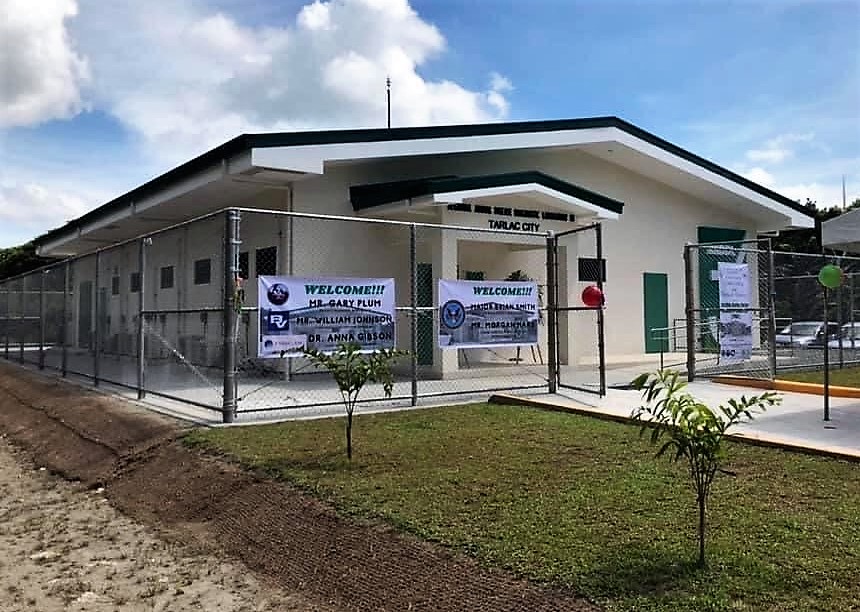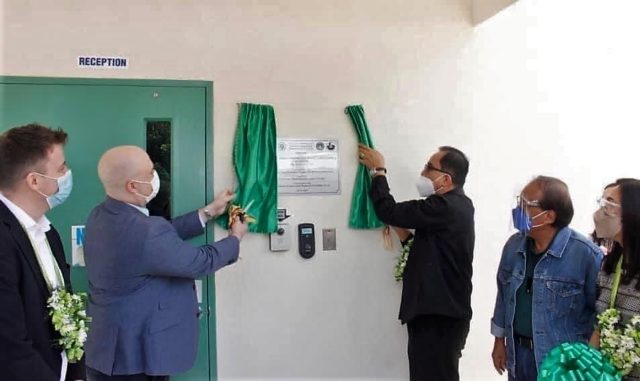DA Secretary William Dar (third from right) and Major Brian Smith of the US–DTRA (second from left) lead the unveiling of the marker of the Regional Animal Disease Diagnostic Laboratory III with USAID representative Morgan Haas (left), Tarlac Vice Gov.Carlito David (second from right) and Tarlac City Mayor Cristy Angeles (right). Contributed photo
TARLAC CITY — The United States Disease Threat Reduction Agency (US–DTRA) turned over Monday to the Department of Agriculture the Regional Animal Disease Diagnostic Laboratory III located inside the Central Luzon Integrated Agriculture Research Center in Barangay Paraiso here.
“This laboratory is timely and really needed here in the region because as you all know, Central Luzon is the most vulnerable in diseases affecting the hog industry,” said Agriculture Secretary William Dar at the turn-over rites.

More specifically, Dar underscored the critical role of the laboratory in combatting the African swine flu which he called “the most dreaded animal disease that paralyzed the country’s hog industry for more than a year now.”
The facility will help protect the poultry and livestock industry for the benefit of farmers, animal raisers and agripreneurs, and consumers in the region.
It will also serve as an important service provider that will support the commerce or trading of poultry and livestock animals for both domestic and export markets.
“This is because the laboratory will provide needed services in terms of disease surveillance, animal health regulatory and research and maybe veterinary students who are taking their clinical studies will also benefit,” Dar said.
In behalf of US-DTRA, Major Brian Smith said: “DTRA leadership in Washington DC is continuously signing appraises of the work of orchestrating doctrine across to bring Filipino nation,” adding they are committed to assist in the development of Filipino laboratory networks.
For his part, United States Agency for International Development–Agricultural Section Representative Morgan Haas hailed the sustained partnership of the United States and the Philippines in combating diseases.
“We are happy to have you as part of the network in order to assure not only the Philippine food security but also the global food security,” Haas said.
The regional animal disease diagnostic laboratory is under the Biological Threat Reduction Program in the Philippines of the US–DTRA. — Gabriela Liana S. Barela/PIA-3





